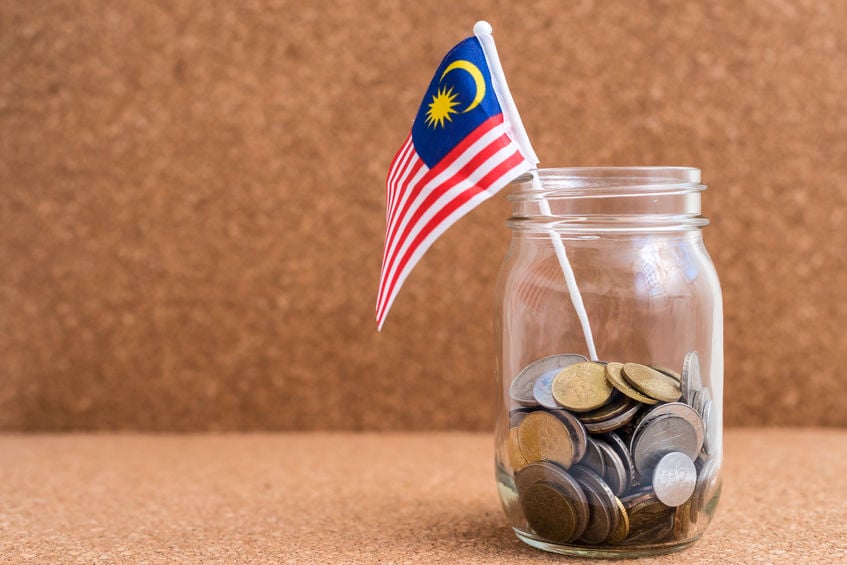Ahmad Mudhakkir
21st November 2017 - 6 min read
We know as much as you do about whether or not North Korea will ever deploy their nuclear armaments, but there’s no harm in being prepared, right?
Even if you think Malaysia might not realistically be affected by nuclear war, knowing how to prepare yourself financially for it can actually bring plenty of benefits even if war never breaks out. This is because the same things that help you sustain yourself financially during wartime are the same things that will keep your finances robust in times of heavy uncertainty.

How Would Nuclear War Affect My Finances?
Let’s imagine a scenario where Malaysia is in a state of war. In such a case, there is a real chance that these things may happen:
- You may lose your job because the industry you’re in may not be functioning
- Some of your assets and property may be seized and repurposed for public interest
- Your businesses might have to shut down due to labor forces
- The value of local currency might drastically drop
Now that we know this, we can set up some strategies to mitigate the potential damage brought upon by these events and better protect ourselves financially. With the 4 risks above in mind, let’s outline some steps we can take.
Protecting Your Job
It’s reasonable to assume that in the event of war, if you don’t get drafted into the military, at least your current civilian job might not exist in the same form anymore. To prepare for times of extreme uncertainty, you can:
Work towards an industry that’s robust enough to withstand periods of economic decline. These would be industries like discount retail, education, technology, jobs in federal government, and healthcare, among others. If you’re already in these industries then you stand a good chance of still being gainfully employed.
If you’re not in these trades, what you can do is take a look at your current skill set and experience to see how these can translate to usefulness during wartime. In fact, if you can afford to do it, it doesn’t hurt to try and shift your career trajectory to one that’s in an industry better suited to weather unpredictability.
Protecting Your Assets
In the event of war, your liquid assets (bank accounts, stocks, bonds, etc) are at risk of becoming majorly devalued, while your real assets (physical items like your house, vehicles, machinery, etc) are at risk of being seized and repurposed for public benefit.
For your bank accounts, you can make sure that they’re protected under the PDIS (Perbadanan Insurance Deposit Scheme) so that the cash there will be insured up to RM250,000 per account.
Your real assets would actually be of good use in these times especially if they have intrinsic value like a vehicle or land property, provided they’re not seized like how we mentioned earlier.
If you want to ensure that your assets don’t devalue too much, what you can do is transfer some of your investments over to assets like rare coins or gold that tend not to depreciate in value. To protect from asset seizure, you can try to purchase and hold them in another, more stable country. You can open a bank account, buy property, and even purchase gold and coins outside Malaysia as well. There’s a reason wealthy people keep their liquid assets offshore. Just make sure you read up on the rules on how to do this so you don’t break any exchange control rules set forth by Bank Negara Malaysia.
<a href=”https://ringgitplus.com/en/insurance/?utm_source=ringgitplus&utm_medium=banner&utm_campaign=my-rpint-gen-gen-insurance&utm_content=blogcta_ins_compareinsuranceplanson_ringgitplus_mid”title=”Compare insurance plans”>
Protecting Your Business
Unfortunately, if your business is already set up and you can’t position them to service the recession-resistant industries we mentioned above, you may have to take a heavy hit. This means laying off your workers, halting production, or maybe even selling off your capital if things get really bad.
However, there are some things you can do to better fortify your business. For one, you can take stock of your supply chain and ensure that they’re diversified enough. That is to say, make sure your sources are spread across different markets in the region so that should one area get severely affected, it won’t impact your pipeline too heavily.
Another thing you may be able to set up is to register your business in a foreign country. Doing this can help sequester your business from harmful economic impact within the country. If you keep your overheads low and focus on keeping your business as lean as possible, you should be able to survive wartime relatively intact. Owning fewer specialised equipment or machinery is also advantageous since it means you have a better chance of repurposing your current tools to service the fluctuation market needs.
Lowering Your Expenses
You probably won’t be attempting any retail therapy in times of conflict, so it makes sense to also lower your spending elsewhere. One quick and simple thing you should already be doing is to take care of your health and the health of those under your care. Having a sturdy insurance policy or medical card on top of being in good health will heavily reduce your medical bills and keep you fit enough to continue doing the work you need to do to sustain yourself.
While all the tips above are context-dependent, they all do follow some important key principles that you can apply to any other part of your finances to remain resilient in times of hardship:
- Branch Out. Spreading out your assets so it extends beyond national borders doesn’t just help hedge against currency fluctuations, it also helps protect your property from being damaged or used for war.
- Be Flexible. Having several different options when it comes to your businesses, career choices, and investments means your risk is spread out more and the chances of one point of failure ruining everything for you are minimised.
- Be Prepared. Building solid financial foundations like a healthy investment portfolio, insurance policies, and emergency funds means even if you do get knocked off your feet, you have a thick fiscal cushion to break your fall.
We hope these tips have enlightened you on how you can make your finances more resistant to heavy changes. Who knows? You might even survive a potential nuclear war unscathed. Do you have anything to add to this article? Do share your thoughts and ideas with us in the comments section down below!










Comments (0)